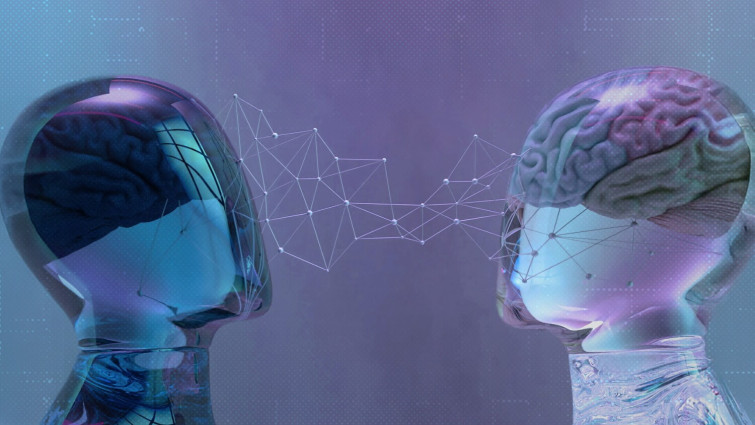Enterprise Safety
You must assume twice earlier than trusting your AI assistant, as database poisoning can markedly alter its output – even dangerously so
30 Jan 2025
•
,
4 min. learn

Fashionable know-how is much from foolproof – as we will see with, for instance, the quite a few vulnerabilities that hold cropping up. Whereas designing techniques which are safe by design is a tried-and-true finest follow, doing so can divert sources from different areas, akin to consumer expertise (UX) design, efficiency optimization, and interoperability with different options and providers.
Thus, security often takes a backseat, fulfilling solely minimal compliance necessities. This trade-off turns into particularly regarding when delicate information is concerned, as such information requires protections which are commensurate with its criticality. As of late, the dangers of insufficient safety measures are more and more evident in synthetic intelligence and machine studying (AI/ML) techniques, the place information is the very basis of their performance.
What’s information poisoning?
AI/ML fashions are constructed on core coaching datasets which are frequently up to date by supervised and unsupervised studying. Machine studying is a serious pathway enabling AI, with ML enabling deep studying, amongst different issues, to develop the AI’s many capabilities. The extra various and dependable the info, the extra correct and helpful the mannequin’s outputs shall be. Therefore, throughout coaching, these fashions want entry to huge quantities of knowledge.
However, the reliance on reams of knowledge comes with dangers, as unverified or poorly-vetted datasets improve the probability of unreliable outcomes. Generative AI, particularly massive language fashions (LLMs) and their offshoots within the type of AI assistants, are identified to be notably susceptible to assaults that tamper with the fashions for malicious functions.
One of the insidious threats is information (or database) poisoning, the place adversaries search to change the mannequin’s habits and trigger it to generate incorrect, biased and even dangerous outputs. The implications of such tampering can ripple throughout purposes, undermining belief and introducing systemic dangers to folks and organizations alike.
Kinds of information poisoning
There are numerous forms of information poisoning assaults, akin to:
- Knowledge injection: Attackers inject malicious information factors into the coaching information to make an AI mannequin alter its habits. A great instance of that is when on-line customers slowly altered the Tay Twitter bot to post offensive tweets.
- Insider assaults: Like with common insider threats, workers may misuse their entry to change a mannequin’s coaching set, altering it piece by piece to change its habits. Insider assaults are notably insidious as a result of they exploit authentic entry.
- Set off injection: This assault injects information into the AI mannequin’s coaching set to create a trigger. This permits attackers to go round a mannequin’s safety and manipulate its output in conditions in accordance with the set set off. The problem in detecting this assault is that the set off may be tough to identify, in addition to that the risk stays dormant till the set off is activated.
- Provide-chain assault: The impacts of those assaults may be notably dire. As AI fashions usually use third-party elements, vulnerabilities launched in the course of the provide chain course of can in the end compromise the mannequin’s safety and depart it open to exploitation.
As AI fashions change into deeply embedded into each enterprise and shopper techniques, serving as assistants or productiveness enhancers, assaults concentrating on these techniques have gotten a major concern.
Whereas enterprise AI fashions could not share information with third events, they nonetheless gobble up inner information to enhance their outputs. To take action, they want entry to a treasure trove of delicate data, which makes them high-value targets. The dangers escalate additional for shopper fashions, which often share customers’ prompts, sometimes replete with delicate information, with different events.
Learn how to safe ML/AI improvement?
Preventive methods for ML/AI fashions necessitate consciousness on the a part of builders and customers alike. Key methods embody:
- Fixed checks and audits: You will need to frequently verify and validate the integrity of the datasets that feed into AI/ML fashions to forestall malicious manipulation or biased information from compromising them.
- Deal with safety: AI builders themselves can find yourself in attackers’ crosshairs, so having a security setup that may present a prevention-first approach towards minimizing the assault floor with proactive prevention, early detection, and systemic safety checks is a should for safe improvement.
- Adversarial coaching: As talked about earlier than, fashions are sometimes supervised by professionals to information their studying. The identical method can be utilized to show the fashions the distinction between malicious and legitimate information factors, in the end serving to to thwart poisoning assaults.
- Zero belief and entry administration: To defend towards each insider and exterior threats, use a safety resolution that may monitor unauthorized entry to a mannequin’s core information. This fashion, suspicious habits may be extra simply noticed and prevented. Moreover, with zero trust nobody is trusted by default, requiring a number of verifications earlier than granting entry.
Safe by design
Constructing AI/ML platforms which are safe by design isn’t just useful – it’s crucial. Very similar to disinformation can affect folks towards dangerous and excessive habits, a poisoned AI mannequin may result in dangerous outcomes.
Because the world more and more focuses on potential dangers related to AI improvement, platform creators ought to ask themselves whether or not they’ve achieved sufficient to guard the integrity of their fashions. Addressing biases, inaccuracies and vulnerabilities earlier than they’ll trigger hurt must be a central precedence in improvement.
As AI turns into additional built-in into our lives, the stakes for securing AI techniques will solely rise. Companies, builders, and policymakers should additionally work collaboratively to make sure that AI techniques are resilient towards assaults. By doing so, we will unlock AI’s potential with out sacrificing safety, privateness and belief.





